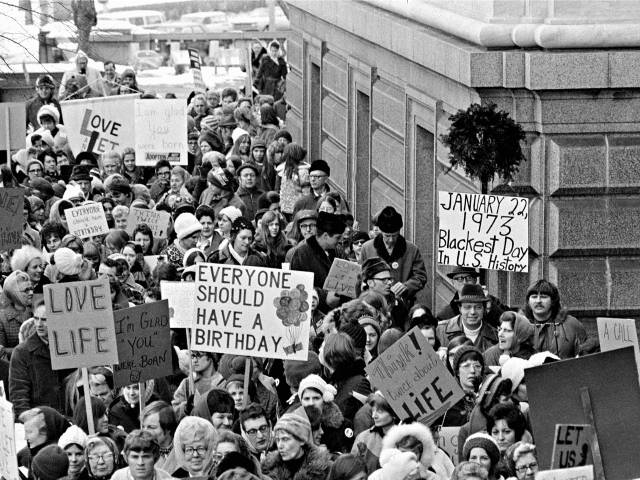The U.S. Supreme Court will hear oral arguments Wednesday in a case that will consider whether a Louisiana abortion law requiring abortionists to have admitting privileges at a nearby hospital is constitutional.
In June Medical Services LLC v. Russo, the Court will consider the case of Louisiana’s 2014 “Unsafe Abortion Protection Act,” requiring abortionists to hold active admitting privileges at a hospital within 30 miles from the abortion clinic.
The abortion industry sued the state of Louisiana, claiming such abortion safety laws are unnecessary and interfere with a woman’s right to abortion.
The Court will also consider whether abortion businesses have the legal right to file lawsuits that challenge abortion health and safety laws in the name of their own abortion patients.
Illinois Right to Life (IRL) is one of the many pro-life coalitions and organizations that filed an amicus brief at the Supreme Court. Steven Jacobs, Ph.D., program director at the pro-life group, wrote the brief for IRL.
“Most briefs have argued that abortion organizations and clinics shouldn’t have standing to sue, but our brief is among the briefs of the Senators and Congressmen arguing that Roe v. Wade should be re-examined,” he told Breitbart News.
“While they argue that the undue burden standard has been found unworkable, we argue that legal, scientific, and social developments show that the factual underpinnings of Roe have so changed as to have made it obsolete and argue for the constitutional rights of fetuses,” he said.
Jacobs explained:
Roe dismissed Texas’s argument that fetuses had rights because there was no consensus on when life begins in 1973 and fetuses were not recognized as persons in most legal contexts, back then. Today, we know there is a scientific consensus that shows a human’s life begins at fertilization and fetal homicide laws show that most states recognize fetuses as human persons at fertilization.
Jacobs himself authored a bombshell study in 2019 that found 80 percent of Americans say biologists should decide the question of when life begins. Then, when more than 5,500 biologists were asked that question, 96 percent affirmed life begins at fertilization.
He continued his argument:
Since Roe said that abortion rights collapse if it is shown that fetuses are persons (p. 29 of the brief), since Justices have said that fetuses would have rights if it is shown that fetuses are humans (p. 29 of the brief), and since Planned Parenthood v. Casey said that the Court would have to overturn Roe if a change to the facts robbed it of its original justification (p. 8 of the brief) – fetuses’ constitutional rights should be recognized and Roe should be updated or overturned.
Jacobs summarized that “things have changed since fetuses were not recognized as biological humans at fertilization or legal persons in 1973.”
He observed as well that things have changed for women since that time.
“The Court was told that ‘a woman, because of her pregnancy, is often not a productive member of society. She cannot work. She cannot hold a job. She’s not eligible for welfare. She cannot get unemployment compensation’ (p. 6 of the brief),” he said.
“However, recent legislation and government programs have addressed many of those issues (p. 23-24 of the brief),” he continued, “and women can give their children up for adoption or use the protection of safe haven laws to leave their infant at a police station or a fire station.”
“So, the detriments associated with child-rearing that the Court used to justify abortion rights are no longer relevant (p. 23-24 of the brief),” Jacobs concluded.

COMMENTS
Please let us know if you're having issues with commenting.